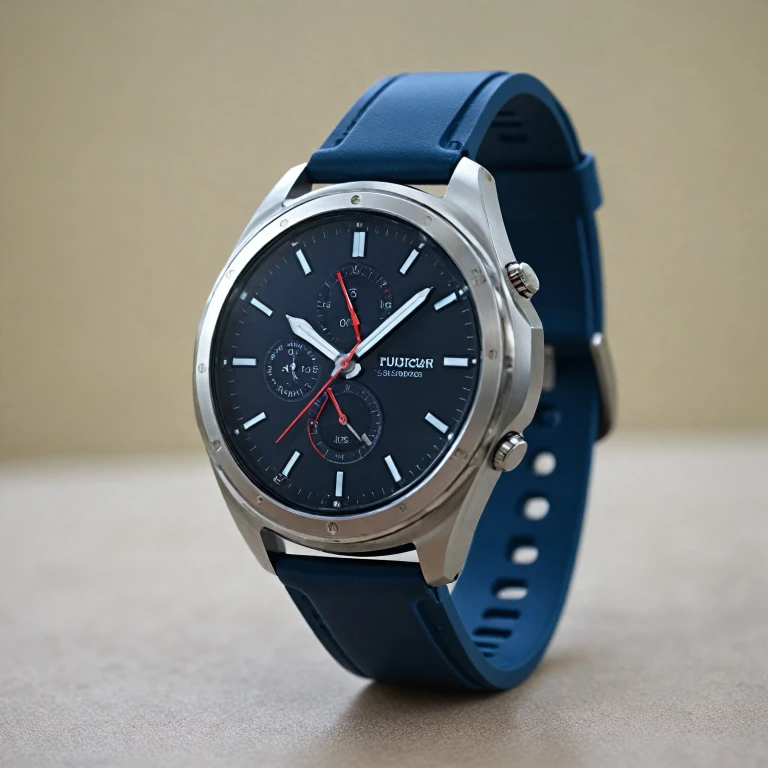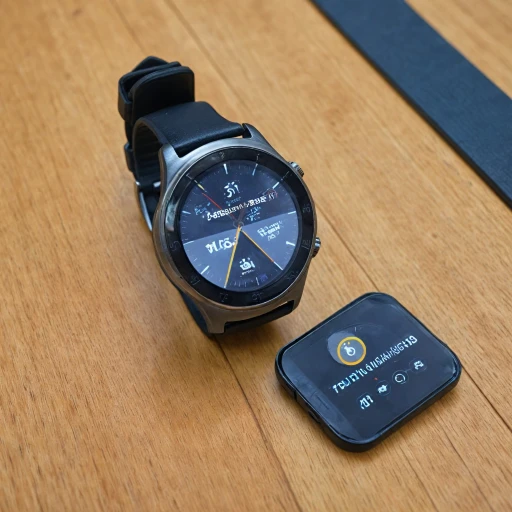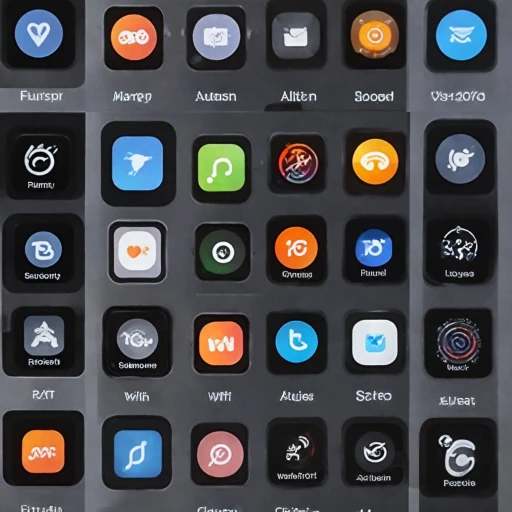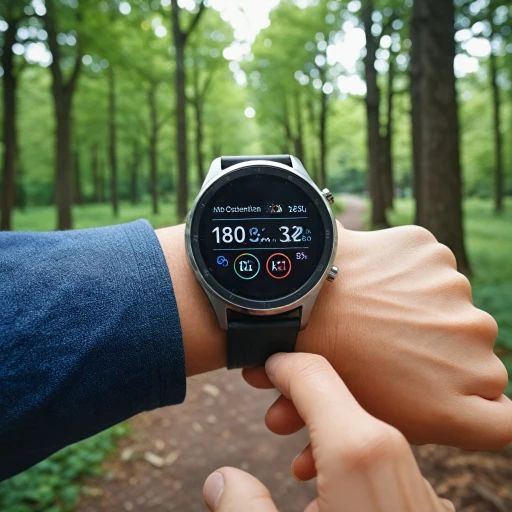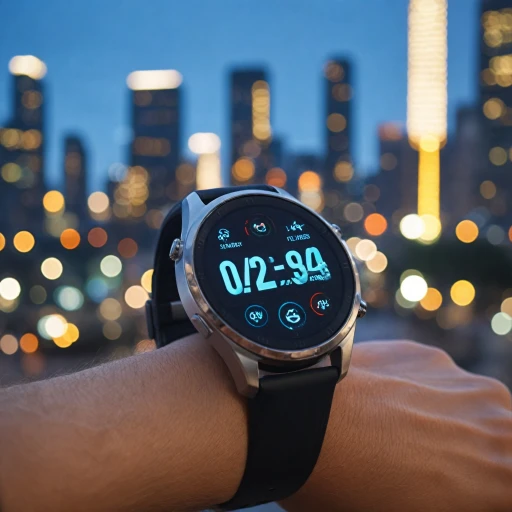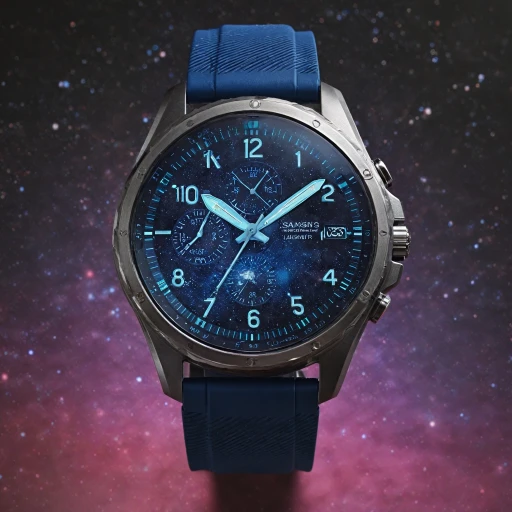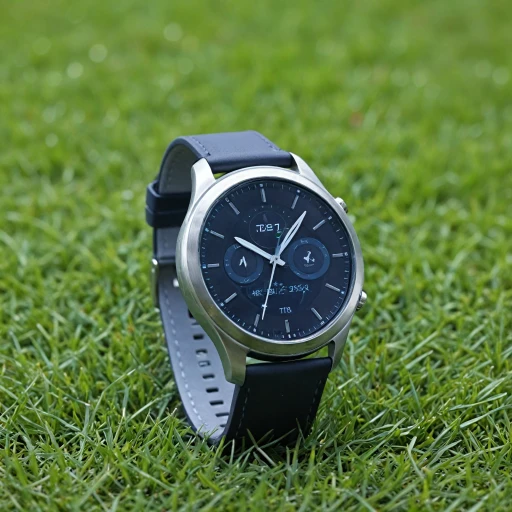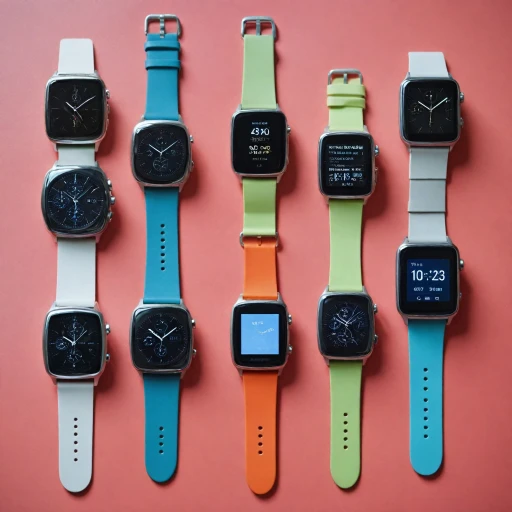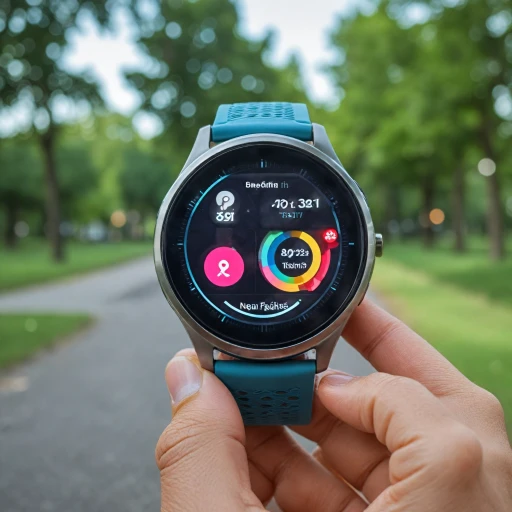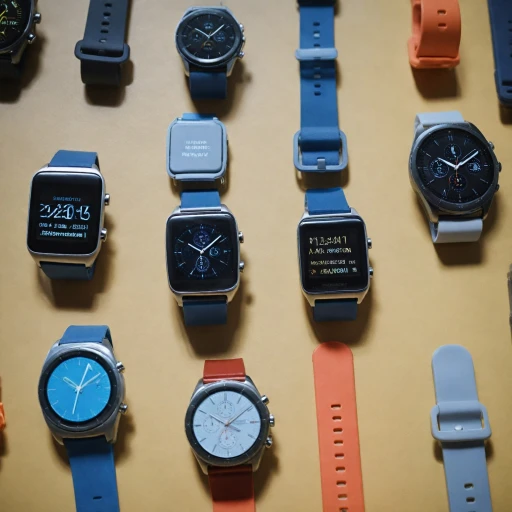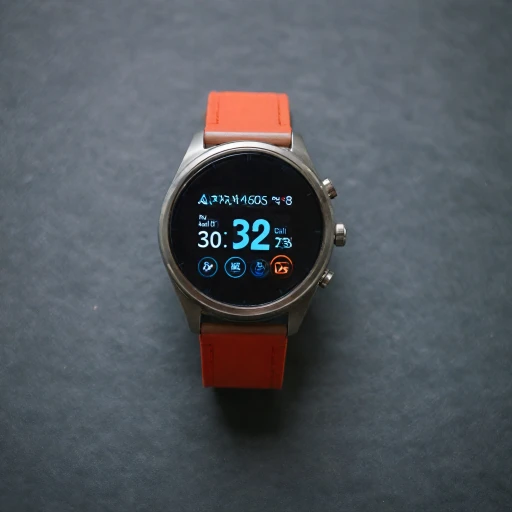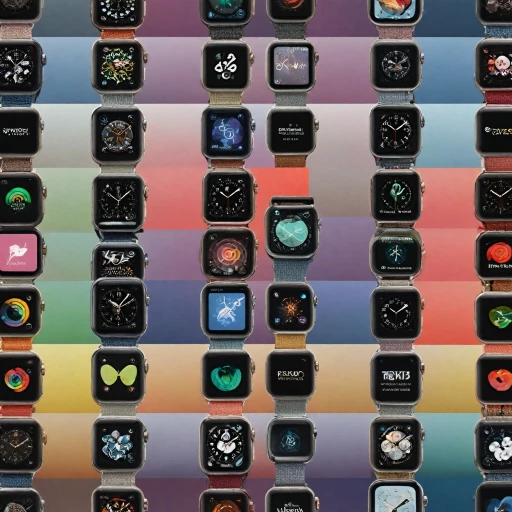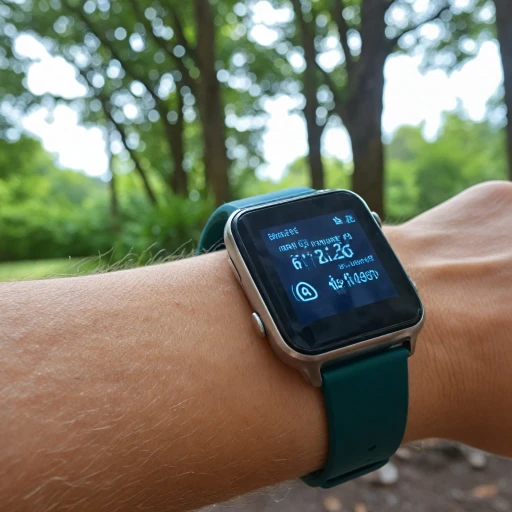
The Anticipated Release Timeline
Projected Launch Window for the Samsung Galaxy Watch 7
As the world of smartwatches continues to evolve, anticipation builds around the release date of the Samsung Galaxy Watch 7. Although Samsung has not officially confirmed when we can expect this new iteration, historical release patterns provide some clues. Traditionally, Samsung releases new Galaxy Watch models annually, around the late summer to early fall, aligning with their major technology events.The previous Galaxy Watch, known for its health tracking capabilities such as advanced sleep monitoring and heart rate sensors, set a high standard for what wearers expect in terms of features and performance. The upcoming Galaxy Watch 7 is likely to follow this trend, potentially even improving these aspects to offer even more precise health insights and an improved sensor system.
Considering the advancements in smartwatch technology and the competitive nature of the market against giants like the Apple Watch, keeping a close eye on Samsung's announcements will be essential for those eager to upgrade their wearable technology. Rumors suggest improvements in battery life and integration with Samsung Health for advanced fitness tracking. As consumers, being well-versed in how these wearable devices evolve will help in making informed purchasing decisions, especially with the expected launch around the horizon.
For more information on optimizing your fitness tracking with Samsung's upcoming wearable technology, check out our detailed coverage on the Samsung Fitness Watch.
What to Expect from the Galaxy Watch 7
Exciting Features Packed into the Upcoming Model
The anticipation surrounding the Samsung Galaxy Watch 7 is not just about its potential release date but also about the enhanced features it may bring. Samsung, a dominant force in the smartwatch arena, often leads with innovations that push technological and health-oriented boundaries.
- Advanced Health Monitoring: The Samsung Galaxy Watch 7 is expected to continue Samsung's legacy in health monitoring. With potential updates to its sensors, this watch may provide more accurate tracking for heart rate and sleep patterns. The addition of sleep apnea detection could enhance personal health awareness further.
- Extended Battery Life: Battery longevity is always a critical factor for smartwatches. Likely innovations in this area could offer users longer wear time and minimal interruptions in their daily tracking routines.
- Improved Connectivity and LTE Options: With enhanced LTE features and connectivity options, the Galaxy Watch 7 may provide a seamless connection, rivaling some of the best phone paired watches on the market.
- New Design and Wear Options: Rumors suggest there could be a push toward more versatile wear options, allowing wearers to seamlessly transition from practical sports wear to more classic, elegant models such as the watch classic variant, catering to diverse lifestyle needs.
- Performance Enhancements: Utilizing the Samsung Exynos chip, users may experience faster processing times and smoother transitions between features, ensuring that the watch keeps pace with demanding tasks.
- Innovative Features Leveraging Samsung's Ecosystem: Integration with Galaxy Buds and leveraging Samsung Health might provide improved user experiences, comparable or potentially surpassing those offered by competitors like the Apple Watch Series and Google's Pixel Watch.
As Samsung continues to advance its wearable technology, the Galaxy Watch 7 could very well set new standards for smartwatches and maintain its place in an increasingly competitive market. The anticipation around its innovative features keeps excitement and expectations high among consumers eagerly awaiting the release.
Comparing with Previous Models
Evolution Through the Generations
The Samsung Galaxy Watch series has seen a remarkable evolution over the years, consistently raising the bar in terms of smartwatch features and performance. To appreciate the potential advancements in the anticipated Galaxy Watch 7, it's crucial to compare it with its predecessors.- Design and Display Improvements: Each iteration of the Galaxy watch has brought a refined design, with sleeker aesthetics and improved display technology. The previous models, such as the Galaxy Watch Classic, have been celebrated for their durability and screen clarity, aspects we expect to see further developed in the next release.
- Battery Life Enhancements: Battery life remains a significant focus in smartwatch development. While the Samsung Galaxy Watch 6 already boasts an impressive battery life, any improvement in this area will further enhance user experience, especially for those utilizing LTE connectivity and extensive health tracking.
- Health and Fitness Tracking: Samsung has continuously integrated more sophisticated health and fitness tracking features, including advanced heart rate monitors and sleep tracking capabilities. The potential inclusion of new sensors for conditions such as sleep apnea could set the upcoming device apart as a health-centric smartwatch.
- Software and Performance: The collaboration with Wear OS and Samsung's in-house advancements such as the Samsung Exynos chipset have driven software and performance refinements. Consumers have praised previous models for their smooth performance and intuitive interface.
Impact on the Smartwatch Market
Influence on the Smartwatch Landscape
The release of the Samsung Galaxy Watch 7 is poised to make significant waves in the smartwatch market. With its anticipated advanced features and enhancements, it is expected to challenge the dominance of other major players like the Apple Watch series. The integration of cutting-edge technology, such as improved health tracking sensors and enhanced battery life, will likely set new benchmarks for competitors.
Samsung's focus on health and wellness, particularly with features like sleep tracking and heart rate monitoring, aligns with growing consumer demand for health-centric devices. This emphasis not only caters to fitness enthusiasts but also to those concerned about overall well-being. The inclusion of sleep apnea detection and other health-related features could further solidify Samsung's position as a leader in wearable technology.
Moreover, the Galaxy Watch 7's potential LTE capabilities and seamless integration with Samsung's ecosystem, including the Galaxy Buds and Samsung Health app, will enhance user experience and connectivity. This could attract users who prioritize a cohesive tech environment, offering a compelling alternative to the Apple Watch and Google’s Pixel Watch.
As the smartwatch market continues to evolve, the Galaxy Watch 7's release will likely spur innovation across the industry. Competitors may be driven to enhance their offerings, focusing on battery efficiency, sensor accuracy, and overall user experience. This competitive landscape benefits consumers, who can expect more advanced and diverse options in the near future.
Challenges in Smartwatch Development
Ongoing Challenges and Developments in the Smartwatch Arena
In the rapidly evolving world of smartwatches, manufacturers face a constant barrage of challenges. As expectations rise, companies like Samsung and Apple are in a race to integrate cutting-edge technology into their devices. One of the consistent hurdles in smartwatch development is enhancing battery life, a key concern for users who require more energy-efficient wearables. The Samsung Galaxy Watch 7, with its focus on improved battery life, strives to meet these demands and set a new standard in the market. Smartwatch users continually seek advanced health tracking features, including sleep monitoring, heart rate detection, and even sleep apnea analysis. These require sophisticated sensors and algorithms that run consistently in the background. Achieving this without significantly compromising battery life remains a significant technical challenge. The integration of LTE connectivity in models like the Samsung Galaxy and Apple Watch series also presents its own set of challenges. While offering greater independence from phones, LTE capabilities demand more from the watch’s battery. Furthermore, with the emphasis on robust health tracking features, the need for accurate data has never been higher. Heart rate monitoring and Samsung Health integration are pivotal, requiring watches to perform well under various conditions, both physically and tecnnologiaclly. Moreover, the ever-evolving smart features such as GPS, navigation, and multimedia capabilities, including seamless pairing with devices like Galaxy Buds, necessitate a balance between performance and power conservation. The introduction of high-definition displays, similar to those seen in the Galaxy Watch Ultra, pushes the boundaries of how energy is consumed, challenging manufacturers to innovate smarter power management systems. Such innovations are vital for the continued success of devices like the watch galaxy series, where user expectations around seamless performance, reliable wear, and cutting-edge capabilities drive the direction of future advancements. As development continues, addressing these challenges will be crucial for brands seeking to maintain an edge in the fiercely competitive smartwatch market.Consumer Expectations and Feedback
Aligning Innovations with Consumer Feedback
As anticipation builds around the Samsung Galaxy Watch 7, consumers naturally have high expectations for features and enhancements over previous models. It's clear that the smartwatch market demands continual innovation, and the upcoming release holds significant potential to raise the bar.
Consumers today are particularly interested in integrated health and fitness tracking capabilities. Enhanced sleep tracking and advanced heart rate monitoring are features that have gained tremendous attention. The hope is that the Galaxy Watch 7 will leverage advancements in sensor technology to offer possibly the best health tracking experience available. Such improvements are not only expected to provide more accurate results but also address critical health concerns like sleep apnea.
Globally, there's a growing emphasis on energy efficiency. Consumers are deeply invested in devices that offer exceptional battery life. Though challenging, meeting these high expectations involves pioneering solutions to ensure long-lasting performance without constant recharging.
Additionally, consumers are looking for seamless integration with other devices like the Galaxy Buds and smartphones. The LTE connectivity feature holds promise for those wanting mobility without tethering to a phone. Meanwhile, Samsung's competition with Apple Watch series and other platforms like Pixel Watch signifies that they must continuously elevate the Galaxy Watch family to maintain their wear watch allure.
Feedback from previous models often cites the need for improvement in both software compatibility and user-friendly interfaces. As samsung galaxy moves toward introducing the next iteration, consumer input presents a valuable opportunity for the brand to make user-centric improvements, aiming to redefine what a wear watch can achieve.
While competition remains fierce across the industry with players like Apple and brand-new releases such as the Samsung Exynos in play, consumer trust and brand loyalty are pivotal. As such, Samsung's upcoming innovation, with its anticipation and community insights, could significantly impact market dynamics if it aligns well with consumer expectations.

